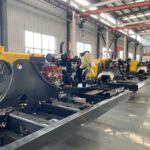Introduction
A wheel loader for sale is a powerful piece of machinery that can greatly increase productivity on any construction or landscaping project. However, with a wide variety of models, sizes, and price points available, the purchasing process can be overwhelming. This ultimate checklist is designed to help you navigate the market and find the perfect wheel loader to meet your specific needs and budget.
Understanding Specifications
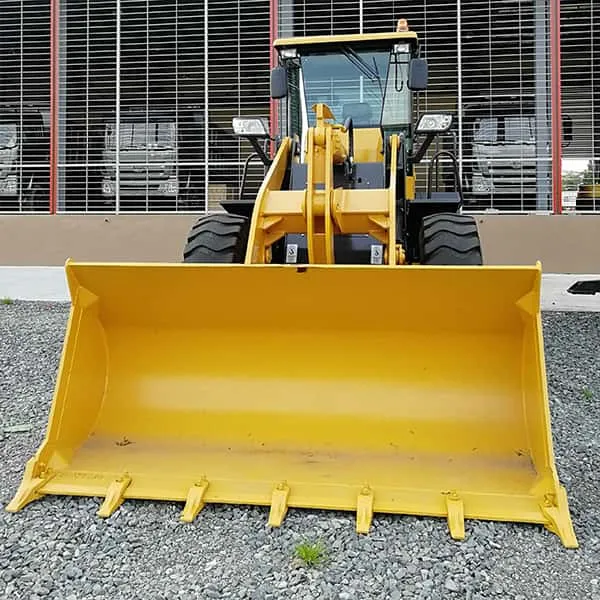
When considering a wheel loader for sale, it’s important to understand the specifications that will impact its performance. Here are some key specifications to consider:
Load Capacity:
The load capacity refers to the maximum amount of material the loader can handle at once. This is typically measured in cubic yards or tons and should align with the size of the projects you intend to tackle.
Lifting Height:
The lifting height determines how high the loader can lift materials. This is important for tasks that require reaching elevated areas or depositing materials at a higher level.
Bucket Size:
The size of the bucket will affect how much material can be moved per load. Larger buckets are more efficient for big projects, while smaller buckets may be better for precision work.
Engine Power:
The engine power drives the performance of the wheel loader. A more powerful engine will provide greater speed and lifting capacity.
Table of Wheel Loader Specifications
| Specification | Description | Importance in Buying Process |
|---|---|---|
| Load Capacity | Maximum amount of material the loader can handle | Affects efficiency and project size |
| Lifting Height | The maximum height the loader can reach | Determines the scope of tasks the loader can perform |
| Bucket Size | The size of the loader’s bucket | Impacts the amount of material moved per load |
| Engine Power | The power output of the loader’s engine | Influences speed, lifting capacity, and overall performance |
Maintenance and Reliability
In addition to the specifications, the maintenance requirements and reliability of a wheel loader for sale should be a top priority. A well-maintained loader will have a longer lifespan and require fewer repairs, saving you money in the long run. Here are some factors to consider:
Service Intervals:
The recommended intervals for oil changes, filter replacements, and other routine maintenance tasks can give you an idea of the loader’s maintenance requirements.Keep in mind that these intervals are general guidelines and may need to be adjusted based on factors such as the loader’s usage, operating conditions, and manufacturer recommendations. It’s important to regularly inspect your loader for any signs of wear and tear, and address any issues promptly to prevent more serious problems down the line. Regular maintenance is key to keeping your loader running smoothly and efficiently for years to come.
Parts Availability:
The ease of obtaining replacement parts can affect downtime and repair costs. It’s important to choose a wheel loader from a manufacturer with a reliable parts supply chain.This ensures that maintenance and repairs can be carried out efficiently, minimizing disruptions to operations and maximizing productivity on the job site. A well-established parts supply chain also helps in ensuring the longevity and performance of the equipment, ultimately leading to cost savings in the long run.
Warranty Coverage:
A comprehensive warranty can provide peace of mind and protect your investment. Look for manufacturers that offer extended warranties or comprehensive coverage.By choosing a warranty that covers a wide range of potential issues, you can ensure that your investment is safeguarded for the long term. This can save you from unexpected repair costs and give you the confidence to fully enjoy your purchase. Make sure to carefully review the terms and conditions of any warranty before making a decision, as not all warranties offer the same level of coverage.
Budget and Cost Considerations
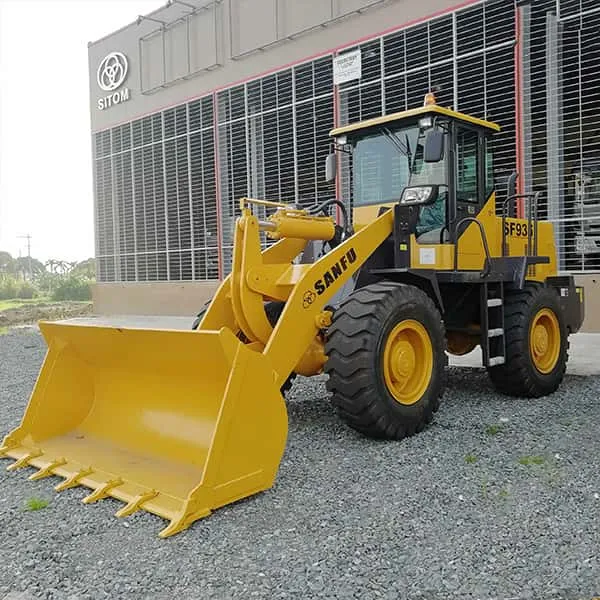
The cost of a wheel loader for sale can vary widely based on its specifications, brand, and condition. When creating your budget, consider not only the purchase price but also ongoing costs like fuel, maintenance, and insurance. Here are some tips to help you stay within your budget:
New vs. Used:
Buying a used wheel loader can save you a significant amount of money compared to a new model. However, used loaders may require more maintenance and repairs.
Financing Options:
If you need to finance your purchase, explore different financing options and compare interest rates to find the best deal.
Total Cost of Ownership:
Consider the total cost of ownership, including the purchase price, maintenance, fuel, and insurance, to ensure that the wheel loader fits within your budget.
Conclusion: Wheel Loader for Sale
Buying a wheel loader for sale is a significant decision that can greatly impact the productivity and efficiency of your construction or landscaping business. By using this ultimate checklist, you can ensure that you consider all the important factors, from specifications and maintenance to budget and cost considerations.
With this comprehensive guide, you will be well-equipped to find the perfect wheel loader that meets your needs and fits within your budget, allowing you to focus on what really matters – getting the job done.
FAQs
Q: How do I determine the right size of a wheel loader for my needs?
A: Consider the size and type of projects you typically work on, as well as the materials you will be handling. A larger loader with a higher load capacity may be necessary for big construction projects, while a smaller loader may be sufficient for landscaping tasks.
Q: What are the most important specifications to consider when buying a wheel loader?
A: The most important specifications will depend on your specific needs, but generally, load capacity, lifting height, bucket size, and engine power are key factors to consider.
Q: How often should I perform maintenance on my wheel loader?
A: Maintenance intervals will vary based on the manufacturer’s recommendations and the conditions in which the loader is used. Always follow the manufacturer’s guidelines and regularly inspect your loader for signs of wear or damage.
Q: Are there any additional costs I should consider when budgeting for a wheel loader?
A: Yes, in addition to the purchase price, consider ongoing costs such as fuel, maintenance, repairs, insurance, and potential financing costs.
Q: How can I be sure I’m getting a good deal on a used wheel loader?
A: When buying a used wheel loader, inspect the machine thoroughly, review its service history, and consider having a qualified mechanic or technician evaluate its condition. Also, compare prices from multiple sellers to ensure you’re getting a fair deal.

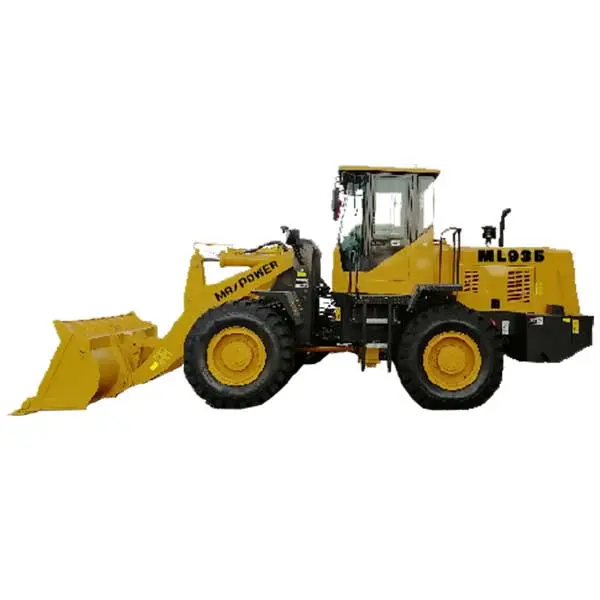




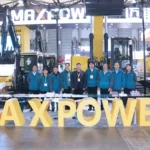
-150x150.webp)
